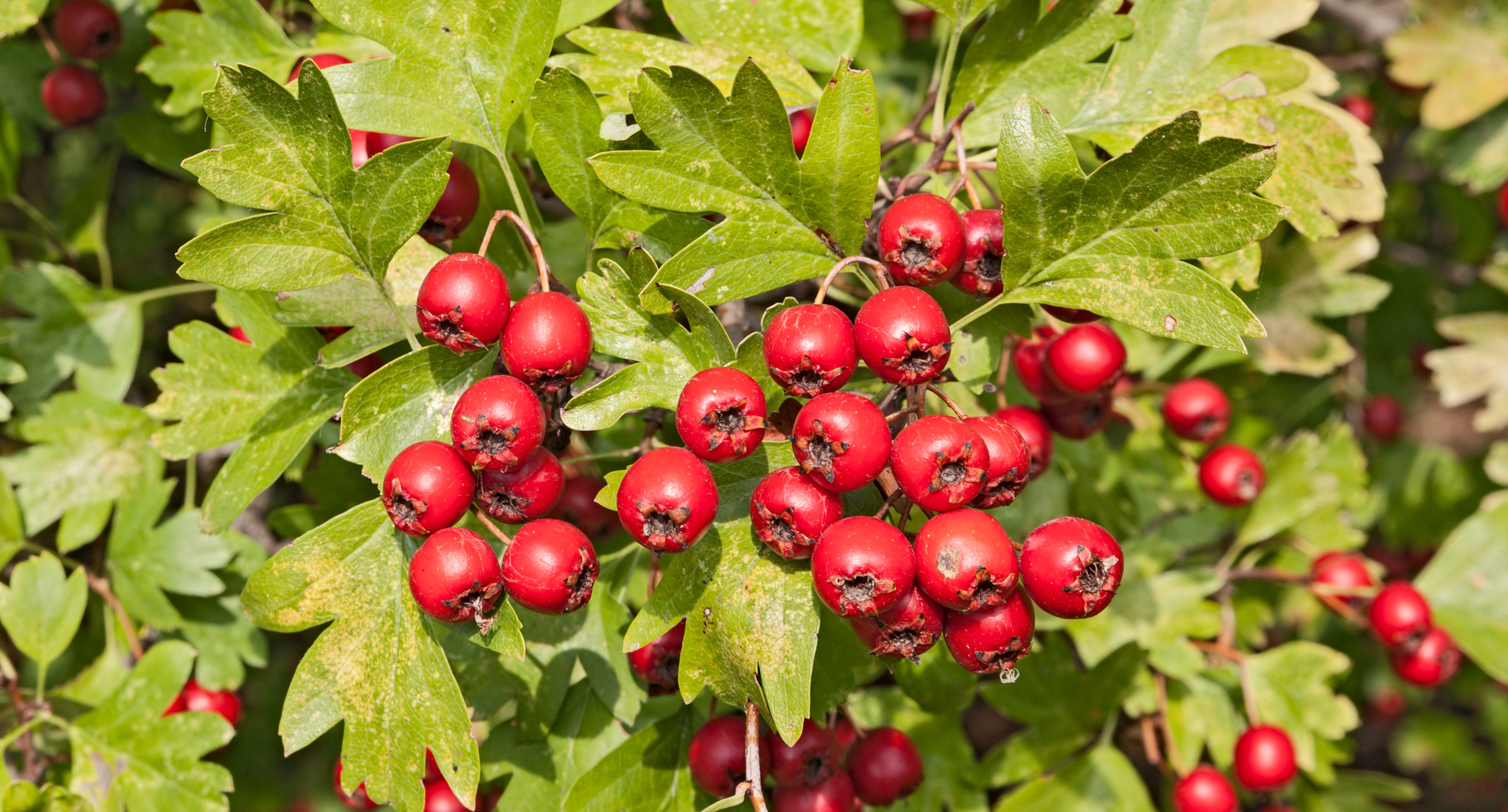
Hawthorn
Scientific Name: Crataegus spp.
Herbal Profile of Hawthorn (Crataegus spp.)
Botanical Name:
- Crataegus spp. (varieties include Crataegus monogyna, Crataegus laevigata, Crataegus oxyacantha)
Common Names:
- Hawthorn
- Mayblossom
- Quickthorn
- Whitehorn
Family:
- Rosaceae (Rose family)
Parts Used:
- Leaves
- Flowers
- Berries (also called "haws")
Active Constituents:
- Flavonoids: Vitexin, hyperoside, rutin, quercetin
- Proanthocyanidins: Oligomeric procyanidins (OPCs)
- Triterpene acids
- Amine derivatives: Phenylethylamine
Primary Actions:
- Cardiotonic (strengthens and tones the heart)
- Antioxidant
- Vasodilator (widens blood vessels)
- Hypotensive (lowers blood pressure)
- Circulatory tonic
- Anti-inflammatory
Traditional and Historical Uses:
- Heart Health: Hawthorn has been used in European herbal medicine for centuries to support cardiovascular health, particularly in cases of heart weakness and mild congestive heart failure.
- Circulatory System: Traditionally used to improve circulation and blood flow, especially to the heart.
- Anxiety and Stress Relief: Historically used to calm the nervous system and ease mild anxiety or nervousness.
- Digestive Aid: Occasionally employed to soothe the digestive system.
Modern Uses:
- Cardiovascular Support:
- Blood Pressure Regulation:
- Improved Circulation:
- Antioxidant Protection:
- Calming Effect:
Forms of Administration:
- Tincture: Alcohol-based extracts are commonly used to support heart health.
- Capsules/Tablets: Dried hawthorn berry or leaf powder is available in supplement form.
- Tea/Infusion: Dried leaves, flowers, or berries can be steeped in hot water to create a tea.
- Extracts: Standardized extracts containing specific levels of active compounds are often used for cardiovascular support.
Dosage:
- Tincture: 1–2 ml (30–40 drops) 2–3 times per day.
- Capsules/Tablets: 160–900 mg per day, standardized extract.
- Tea: 1–2 teaspoons of dried herb per cup of boiling water, steeped for 10–15 minutes, taken 2–3 times daily.
Note: Dosage can vary based on individual needs and product formulations. It's important to consult a healthcare professional for personalized advice, particularly for heart-related conditions.
Safety and Precautions:
- Pregnancy and Breastfeeding: Consult a healthcare provider before use as safety during pregnancy is not well-established.
- Heart Medications: If you are taking heart medications (like beta blockers or blood pressure medications), consult your doctor before using hawthorn, as it can enhance the effects of these drugs.
- Potential Side Effects: Mild side effects can include dizziness, nausea, or gastrointestinal upset, though hawthorn is generally well-tolerated.
Key Benefits:
- Cardiovascular Health: Improves heart function, strengthens heart muscles, and promotes better blood flow.
- Blood Pressure Regulation: Helps maintain healthy blood pressure by dilating blood vessels.
- Circulation Improvement: Enhances circulation, particularly to the heart and extremities.
- Antioxidant Protection: Protects the cardiovascular system from free radical damage.
- Calming Effects: Supports emotional well-being and reduces anxiety.
Sustainability:
- Hawthorn is a widely cultivated plant and is not at risk of overharvesting. Many varieties grow throughout Europe, Asia, and North America, making it a readily available and sustainable herb.
Summary:
Hawthorn is a powerful herb best known for its cardiovascular benefits. It has been used for centuries to strengthen the heart, regulate blood pressure, and improve circulation. Additionally, hawthorn provides antioxidant protection and has a gentle calming effect, making it valuable for those dealing with mild stress or anxiety. Its long history of safe use, particularly for heart health, makes it a go-to herb in both traditional and modern herbal medicine.
